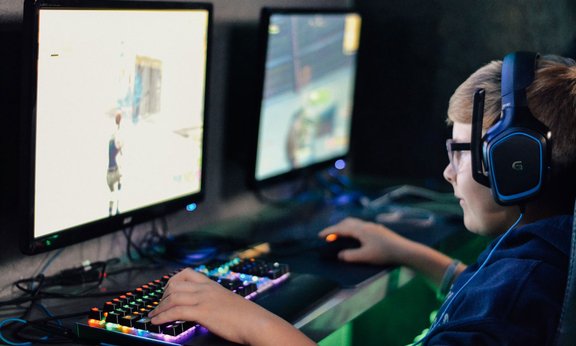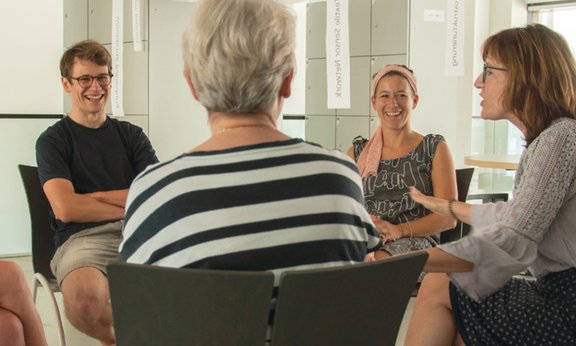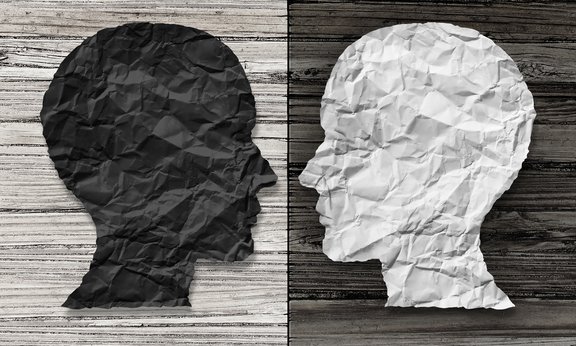Bachelor’s Programme Psychology
Would you like to understand the psychological processes of interaction between humans and their social, technical and natural environment?
The students of the Bachelor’s Degree Programme in Psychology gain basic knowledge about human experience and action as well as mental processes that are important for the interaction between people and their social, technological and natural environment.
Graduates will be able to apply this basic knowledge for designing and enhancing human living and working conditions. Another part of this Programme focuses on teaching students thorough skills in psychological diagnostics and psychological interventions in the fields of clinical, health, work and organisational psychology.
Please note: the language of instruction for this programme is German.
Study Code
UC 033 640
Admission procedure
Information
FAQ
Graduates are able to produce, evaluate, assess and implement scientific developments in the fields of psychology and to apply them in interdisciplinary contexts. They possess theoretical and methodological problem-solving skills as well as specialist skills in clinical, health-oriented, vocational and organisational psychological contexts.
The Bachelor's Programme Psychology serves as preparation for a master's degree programme and as vocational training. The programme conveys the fundamental knowledge required for the responsible and scientifically sound analysis of psychological problems and for the assessment of psychological activities.
The Bachelor's Programme in Psychology conveys the fundamentals of the discipline. Students acquire knowledge of the scientific description and explanation of human experience and activity as well as of psychological processes, such as perception, feeling, thought, memory, that are of central importance in the interaction between the individual and his or her social, technical and natural environment.
In addition to solid knowledge in basic research and methodology in psychology, students learn the fundamentals of the application of psychological knowledge to shape and improve people's living and working conditions. The focus of the practically-oriented programme lies in conveying solid fundamental knowledge of psychological diagnostics and of psychological intervention in clinical, health, occupational and organisational fields as well as in educational contexts.
For professional activities as a psychologist, a master's degree will likely be required (new law governing psychology as a profession).
The most common areas of activity for psychologists:
- Health care (clinical psychology, psychotherapy, neuropsychology, rehabilitation psychology),
- work, organisational and business psychology (company psychology, personnel management, employment market administration, business and personnel consultation, advertising),
- educational psychology (school psychology, educational counselling facilities),
- universities (research, teaching, student counselling)
- and traffic psychology.
Graduates tracking: Shows which occupational fields students enter after graduation
Master's Programmes
More offers
Faculty of Psychology and Sport Science Examination Office Information for students with disabilities
Curriculum
From the field

Wie ansteckend sind aggressive Computerspiele?
Jede zweite Person in Österreich tut es: spielen am Computer. Der Trend ist steigend und speziell über die Effekte von Ego-Shootern wird heiß diskutiert. Der Sozialpsychologe Tobias Greitemeyer hat soziale Ansteckung anhand folgender zwei Fragen erforscht: Fördern gewalthaltige Spiele die Aggression der Spielenden und werden deren Freund:innen auch aggressiver, selbst wenn sie nicht spielen?

Ein gutes Gespräch
Ein Lächeln, eine gerunzelte Stirn oder ein skeptischer Blick – die Mimik des Gegenübers verrät viel über den Verlauf eines Gesprächs und beeinflusst die zwischenmenschliche Atmosphäre. Im kommenden Wintersemester startet erstmals der berufsbegleitende Universitätslehrgang „Kommunikation und psychologische Gesprächsführung“.

Geprüfte Liebe
Liebe neu zu erfahren, Beziehungen neu zu organisieren sowie das intensive Zusammenleben oder Getrenntsein neu zu erleben – vor diesen Herausforderungen standen Paare während der Corona-Pandemie, die das Leben der Menschen grundlegend verändert hat. Marcel Zentner, Professor am Institut für Psychologie, hat gemeinsam mit seinem Team Beziehungen in Zeiten von COVID-19 analysiert.

Schleichende Spuren
Wir stellen unser Leben um, verbringen ungewohnt viel Zeit daheim, sind alleine oder lernen den Umgang mit neuen Technologien. Die Corona-Pandemie stellt den Menschen viele Aufgaben, die von allen unterschiedlich wahrgenommen werden und ihre Spuren hinterlassen. Eine interdisziplinäre Forschungsgruppe hat viele Facetten der psychosozialen Auswirkungen von COVID-19 untersucht.














